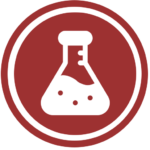Remarkable Curriculum
Our Science department have set out to design our Science curriculum around a set of key objective and goals. Select the link below to view and download.
Our Science department have set out to design our Science curriculum around a set of key objective and goals. Select the link below to view and download.

Science skills open doors to diverse career opportunities, fostering effective critical thinking and problem-solving abilities.
To support your child throughout their studies, our team recommend the following external content.

The Ripley Academy
Peasehill
Ripley
Derbyshire
DE5 3JQ